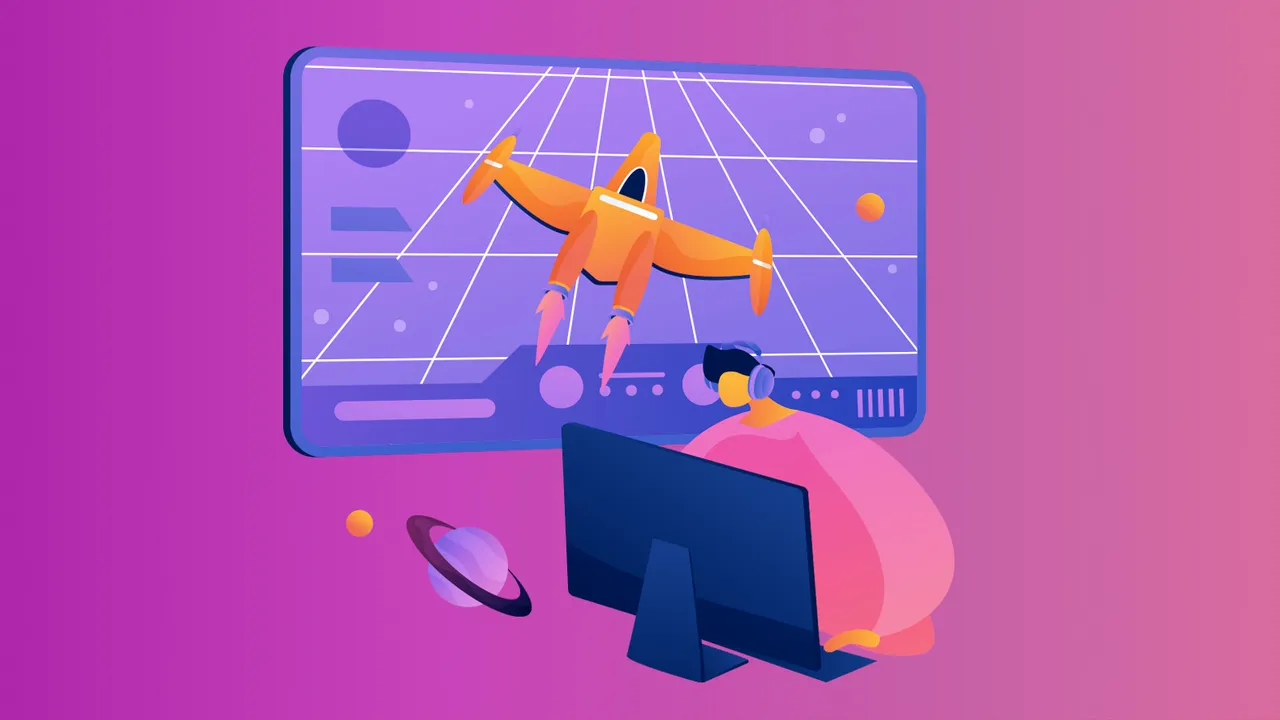Logistics Jobs in the Video Game Industry: The Ultimate Quick Guide
Introduction
The video game industry is a rapidly growing and diverse sector, offering a wide range of career opportunities for individuals with various skills and backgrounds. One area that plays a vital role in the success of the industry is logistics, which includes roles such as supply chain management, inventory control, and distribution. This article will delve into the different logistics jobs in the video game industry, the skills required, and how to get started.
The Role of Logistics in the Video Game Industry
Logistics professionals in the video game industry are responsible for managing the supply chain, inventory, and distribution of video game products and merchandise. They work closely with manufacturers, retailers, and other stakeholders to ensure that products are delivered on time, within budget, and in the right quantities. Logistics professionals must have excellent organizational, analytical, and communication skills, as well as the ability to adapt to a fast-paced and constantly changing industry.
Different Logistics Jobs in the Video Game Industry
Supply Chain Manager: Supply chain managers are responsible for overseeing the entire supply chain process, from sourcing raw materials and components to delivering finished products to retailers and consumers. They must have a strong understanding of supply chain principles, as well as excellent management and negotiation skills.
Inventory Control Specialist: Inventory control specialists are responsible for tracking and managing the inventory of video game products and merchandise. They must have strong analytical skills and an understanding of inventory management principles, as well as the ability to predict demand and adjust inventory levels accordingly.
Distribution Manager: Distribution managers are responsible for managing the transportation and distribution of video game products, ensuring that they are delivered on time and in the right quantities. They must have a strong understanding of transportation and logistics principles, as well as excellent management and problem-solving skills.
Skills Required for Logistics Jobs
Organizational Skills: Logistics professionals must have excellent organizational skills, as they are responsible for managing complex supply chains, inventories, and distribution processes.
Analytical Skills: Strong analytical skills are essential for logistics professionals, as they need to analyze supply chain data, predict demand, and make informed decisions regarding inventory levels and distribution strategies.
Communication Skills: Effective communication is crucial for logistics professionals, as they need to collaborate with various stakeholders, such as manufacturers, retailers, and other team members.
Adaptability: Logistics professionals must be able to adapt to the fast-paced and constantly changing video game industry, staying current with industry trends and developments.
Problem-Solving Skills: The ability to identify and resolve logistical issues and challenges is crucial for logistics professionals, as their success depends on the efficient and timely delivery of products.
Educational Background and Experience
A bachelor's degree in logistics, supply chain management, or a related field is often required for logistics jobs in the video game industry. In addition, many logistics roles require experience in supply chain management, inventory control, or distribution, as well as a strong understanding of the video game industry and its unique challenges. Aspiring logistics professionals should focus on building a strong portfolio that showcases their logistics and supply chain management skills, as well as gaining practical experience through relevant internships or part-time/freelance work discovered via Hitmarker.
Tips for Breaking into Logistics Careers in the Video Game Industry
Build Your Portfolio: Create a comprehensive portfolio that demonstrates your logistics and supply chain management skills. Include examples of your work, such as case studies, inventory management projects, or supply chain analyses.
Network: Build relationships with other professionals in the industry by attending events, joining online forums, and engaging in social media groups. Networking can lead to job opportunities, collaborations, and valuable insights from industry veterans.
Gain Experience: Acquire practical experience through internships, freelance work, or industry-specific positions. This will not only help you develop your skills but also provide you with valuable contacts and references in the industry.
Tailor your applications: When applying for logistics jobs in the video game industry, make sure to customize your resume and cover letter to highlight the skills and experiences most relevant to the specific company and position. This will elevate you above the majority of your competition.
Stay Current: Keep up-to-date with industry trends, techniques, and developments by reading articles, watching webinars, and participating in online discussions. Continuously improve your skills and expand your knowledge by taking courses, workshops, or attending industry events.
Be Persistent: Breaking into the video game industry can be challenging, but persistence is key. Continue developing your skills, learning from feedback, and improving your portfolio to increase your chances of success.
Conclusion
Logistics jobs in the video game industry offer a diverse range of opportunities for individuals with strong organizational, analytical, and communication skills. By building a portfolio, networking, gaining experience through jobs found on Hitmarker, and staying current with industry trends, aspiring logistics professionals can pave their way towards a successful and rewarding career in this crucial and dynamic field.
-
 Landing a Summer Internship in the Video Game Industry: The Ultimate Quick Guide
Landing a Summer Internship in the Video Game Industry: The Ultimate Quick Guide -
 Entry-level Jobs in the Video Game Industry: The Ultimate Guide
Entry-level Jobs in the Video Game Industry: The Ultimate Guide -
 Junior-level Jobs in the Video Game Industry: The Ultimate Guide
Junior-level Jobs in the Video Game Industry: The Ultimate Guide -
 Intermediate-level Jobs in the Video Game Industry: The Ultimate Guide
Intermediate-level Jobs in the Video Game Industry: The Ultimate Guide -
 Senior-level Jobs in the Video Game Industry: The Ultimate Guide
Senior-level Jobs in the Video Game Industry: The Ultimate Guide -
 Getting into gaming: Strategies for landing your first game development job with Katherine Mould of Keywords Studios
Getting into gaming: Strategies for landing your first game development job with Katherine Mould of Keywords Studios -
 Art and Animation Jobs in the Video Game Industry: An Overview
Art and Animation Jobs in the Video Game Industry: An Overview -
 Business Operations Jobs in the Video Game Industry: An Overview
Business Operations Jobs in the Video Game Industry: An Overview -
 Communications and Marketing Jobs in the Video Game Industry: An Overview
Communications and Marketing Jobs in the Video Game Industry: An Overview -
 Content Creation Jobs in the Video Game Industry: An Overview
Content Creation Jobs in the Video Game Industry: An Overview -
 Game Design Jobs in the Video Game Industry: An Overview
Game Design Jobs in the Video Game Industry: An Overview -
 Game Development Jobs in the Video Game Industry: An Overview
Game Development Jobs in the Video Game Industry: An Overview